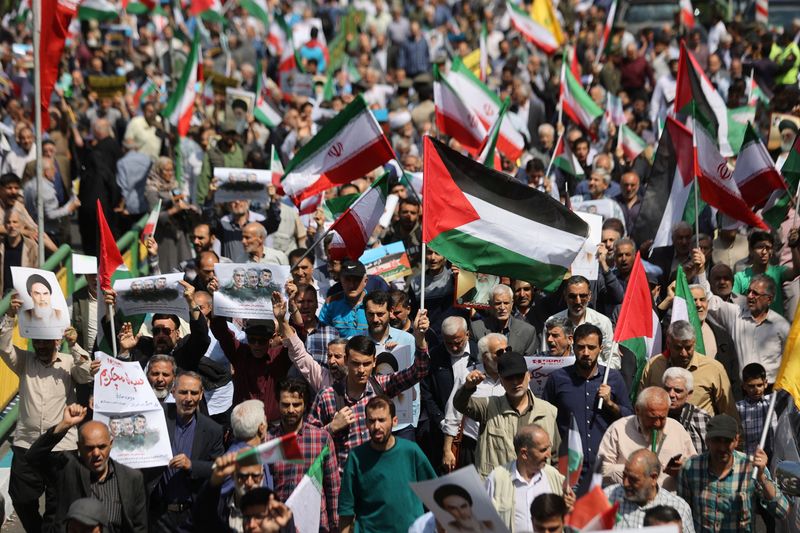Over the course of six days, Israel deliberated on how to respond to Iran’s first ever direct attack on its arch rival. The strike may have been small and calculated, with the goal of avoiding a major war. The Israeli war cabinet initially approved plans for a strike inside Iranian territory, but ultimately opted for a more restrained approach after receiving strong warnings against escalation. The decision to strike was delayed twice amidst divisions within the cabinet and pressure from international partners.
While there were initially plans to target strategic sites, including Iran’s nuclear facilities, the eventual strike avoided using aircraft or ballistic missiles and caused limited damage. This approach was likely designed to send a message to Iran while minimizing the risk of further escalation. The decision to strike was influenced by various factors, including the need to keep international opinion on Israel’s side and prevent a wider regional conflict. The strike was met with cautious relief across the Gulf region, with many seeing it as a move towards de-escalation.
The competing pressures facing Netanyahu’s government were evident in the aftermath of Iran’s missile and drone attack. Some members of the war cabinet, including Defense Minister Gantz, initially pushed for an immediate response, but ultimately agreed to hold off following a call with U.S. President Biden. Israel communicated its impending strike to senior U.S. officials, emphasizing the need for caution to prevent escalation. The decision-making process also involved input from ultra-Orthodox parties in Netanyahu’s coalition, with concerns about endangering Israeli citizens factoring into the deliberations.
Israel’s options for responding to Iran’s attack ranged from strikes on strategic facilities to covert operations and cyber attacks. Gulf countries expressed concern about the possibility of a wider regional conflict and urged Israel to exercise self-restraint. Saudi Arabia and the UAE called for a limited Israeli attack that would not provoke a major reprisal. Regional governments sought to convey this message to Israel through diplomatic channels in order to prevent the situation from spiraling out of control.
Following the Israeli strike, which targeted an Iranian Air Force base near Isfahan, Iran claimed to have shot down three drones over the base. The strike was seen as a measured and proportionate response that aimed to avoid casualties and major damage. While the strike may have satisfied Israel’s moderates and international partners, it was met with disappointment from hardliners within Netanyahu’s cabinet. The decision-making process leading up to the strike highlighted the delicate balance between responding to Iran’s aggression and avoiding a wider conflict, underscoring the complexities of the geopolitical dynamics in the region.


